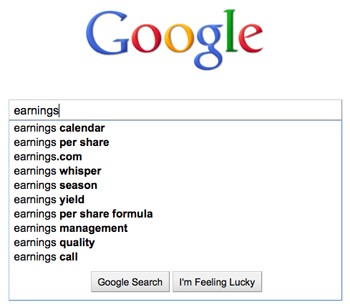Ah, earnings season. CFOs reach for their lucky pen, belt, shoes or other good luck charm. Investor relations teams prepare to highlight the good and mitigate the bad. And if you listen closely, you can hear conference call lines being initiated all over the country.
Reporting on corporate earnings leaves a journalist open to committing a range of mistakes. From misinterpreting data to missing a hidden story or falling for a company’s spin, the dangers are many. And the time constraints are serious.

I contacted Chris Roush, the Walter E. Hussman Sr. Distinguished Scholar in business journalism at the University of North Carolina at Chapel Hill and the author of Show Me The Money: Writing Business And Economics Stories For Mass Communication, to help identify some of the common mistakes made by journalists covering earnings reports. Below are five tips to help you avoid error and deliver solid earnings reporting.
1. Beware of earnings per share.
“The biggest mistake that comes with covering earnings is that business journalists write earnings stories based on the earnings per share number and not the net income number,” says Roush. “That’s a mistake because companies can manipulate the earning per share number by buying back shares of their company during that quarter.”

2. Get on the earnings call.
“Not enough attention is put on the conference call,” Roush says. “A lot of time an executive will say something during a conference all that presents a totally different picture than what the numbers say in the earnings release. Or they might give guidance for what future earnings are going to be for the next quarter or year — and that could be dramatically different than what Wall Street is expecting.” He also recommends reporters listen to the interaction between the executives and analysts. Is there tension? Hostility? A shift in tone can signify something bigger.
3. Know when to ignore the stock price.
If a company is in bankruptcy protection, Roush says to not bother reporting what happened with company’s stock price on the day of an earnings release. Instead, he says, “you should mention what the bonds of that company did that day.”
4. Read the whole thing.
Some earnings releases are ridiculously long. But, as is often the case with releases, bad news is likely to be buried or saved until the end. “They can sometimes be 20 pages long, and some companies are intentionally trying to overwhelm business reporters by giving so much information that they can’t digest it all very quickly,” Roush says. For example, companies that are taking a charge on earnings will often reveal that in a different section than the main earnings information.
5. Make the right comparisons.
“Compare a company’s quarterly earnings to the same quarter from the previous year, not the previous quarter,” Roush says. “Most businesses are cyclical, making the better comparison the same time a year ago … Some reporters make the mistake of comparing the third quarter to the second quarter. You can’t do that.” He also recommends reporters compare the results with competing companies. “Don’t forget to compare the income growth to a major competitor,” he says. “If Lowe’s net income is growing faster than Home Depot’s, then that’s a good indication it’s performing better.” This also ensures you don’t miss out on an industry trend.
Do you have other advice to share? Please add it in the comments.










